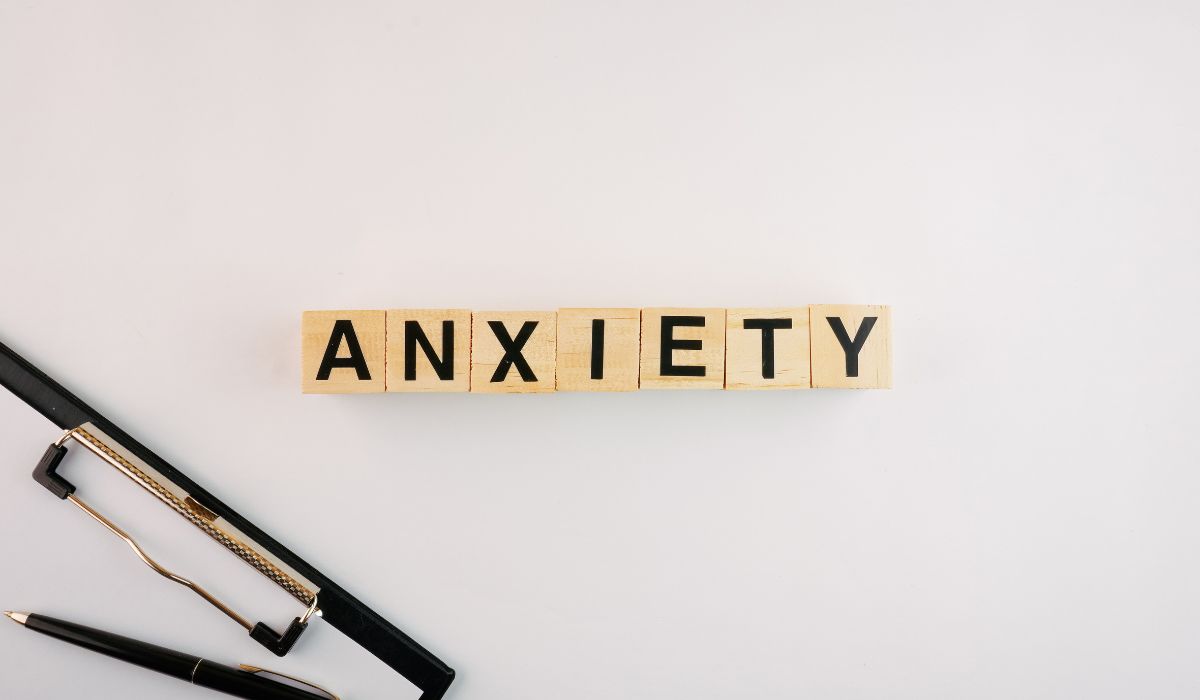Why You Might Be Asking: “Depression or Burnout?”
Life can feel heavy. Maybe your workload keeps growing. Maybe you wake up with fatigue and low motivation. You wonder, “Am I burnt out and depressed?” You are not alone. Many people feel stuck between burnout and depression. This guide explains the difference between burnout and depression, shows warning signs, and gives you small, safe steps to start feeling better.

What Is Burnout?
Occupational burnout happens when work or caregiving demands drain your energy for a long time. It is tied to occupational stress—stress from your job or role. Burnout builds slowly. It often starts with chronic stress, feeling overwhelmed, and never having time to rest. Burnout can also show up at home, especially if you are a caregiver for a loved one.
Common Signs of Burnout
-
Tired all the time (fatigue), even after sleep
-
Anger or anxiety about work tasks
-
Feeling numb or detached, like you do not care
-
Trouble concentrating and slower behavior at work
-
Head, neck, or back pain; headache by the afternoon
-
Feeling ineffective or unappreciated
-
Using quick fixes (too much caffeine, sugar, or scrolling)
What Raises Burnout Risk?
-
Heavy workload or unclear job roles
-
Not enough control over your schedule
-
Few breaks, long hours, or night shifts
-
Little support from your boss or team
-
Being a caregiver without help
Burnout is not a personal failure. It is a signal. Your mind and body are saying, “I need care.”
What Is Depression?
Depression is a mood disorder that affects how you feel, think, and act. When symptoms last most days for two weeks or more and affect daily life, a health professional may consider major depressive disorder. Depression can happen with or without work stress. It can also occur alongside health disease like diabetes or after big life changes.
Common Signs of Depression
-
Deep sadness, emptiness, or loss of motivation
-
Less joy in things you used to like
-
Big changes in sleep (too much or too little)
-
Changes in appetite or weight loss (or weight gain)
-
Moving or thinking more slowly (or feeling keyed up)
-
Low energy and depression exhaustion
-
Feeling worthless or guilty
-
Trouble focusing or making choices
-
Thoughts of death or suicidal ideation (this needs urgent help)
Body Clues You Might Notice
Depression can show in the body, too. Many people report headache, stomach pain, or aches. Some notice low appetite, poor sleep, or changes in hormones related to long-term stress.
Burnout v Depression: What’s the Difference?
Burnout grows from occupational stress or long-term demands. Depression can start even without job stress and can affect all parts of life. Here is a simple way to think about burnout v depression:
-
Where it shows up
-
Burnout: mostly about work or a role (job, school, caregiving).
-
Depression: shows up in many areas—home, relationships, hobbies, and work.
-
-
Feeling better away from stress
-
Burnout: you may feel a bit better on weekends or vacation.
-
Depression: the low mood often follows you everywhere.
-
-
Core feelings
-
Burnout: frustration, cynicism, feeling ineffective.
-
Depression: sadness, emptiness, numbness, or guilt.
-
-
Physical clues
-
Both can cause fatigue, sleep problems, and headache. But depression more often brings strong changes in appetite and weight loss (or gain).
-
Research and more than one systematic review in psychology and medicine suggest they can overlap. You might feel depression and exhaustion from depression from exhaustion, and also have work stress. That is why a mental health professional can help sort it out.
Quick Self-Check: Depression or Burnout?
Short Questions to Ask Yourself
-
Do I feel mostly worse about work or caregiving? (points to occupational burnout)
-
Do I feel low almost every day, no matter where I am? (points to depression)
-
Do breaks or time off help a lot? (more like burnout)
-
Do I have strong changes in sleep, appetite, or weight loss? (more like depression)
-
Do I feel hopeless, guilty, or have suicidal ideation? (urgent help needed)
This self-check is not a diagnosis. It simply helps you talk with a health professional.
Why Knowing the Difference Matters
If your main issue is occupational stress, fixing workload, getting support, and building stress management skills may help most. If you have major depressive disorder, you may need therapy, lifestyle changes, and sometimes medicine. Many people have both. Then you may need a mix: workplace changes, coping skills, and treatment for depression.
First Steps You Can Try Today
Small steps matter. You do not need to do everything at once.
Rest, Rhythm, and Refill
-
Sleep: Aim for a steady bedtime and wake-up time. Turn off screens 60 minutes before bed.
-
Food: Eat regular meals to steady appetite and energy.
-
Water & movement: Drink water and add gentle exercise (a 10-minute walk). Movement helps mood and anxiety.
Calm Your Stress System
-
Breathing: Try 4-4-6 breaths (inhale 4, hold 4, exhale 6) for two minutes.
-
Meditation: Short, kind attention to your breath. Even 3 minutes helps.
-
Empathy for yourself: Talk to yourself like a friend. This soft voice helps healing.
-
Coping plan: Write a “hard day list”—3 small actions that help (walk, stretch, call a friend).
Rebuild Motivation Gently
-
Use the “motivation follows action” rule. Start tiny.
-
Pick one “win” before noon (make the bed, send one email).
-
After wins, tell yourself, “That counts.” Your brain learns from praise.
Work Changes That Reduce Burnout
Talk and Tweak
-
Ask your manager to review workload and priorities.
-
Request clearer goals or rotating tough tasks.
-
Schedule short breaks: 5 minutes every 60–90 minutes.
-
Use focus blocks to avoid constant switching.
Build a Human Safety Net
-
Find one “wise buddy” at work. Share what is hard.
-
Join a peer group or employee resource group.
-
If you are a caregiver, ask for help from family or friends once a week.
When to Seek Professional Help
Please reach out to a mental health professional or health professional if:
-
Symptoms last most days for two weeks or more
-
You cannot do normal tasks at work or home
-
You have strong anxiety, panic, or feel stuck
-
You have big changes in sleep, appetite, or weight loss
-
You have suicidal ideation or thoughts of self-harm (get urgent help now)
If you or someone you know is in immediate danger, call your local emergency number right away, or go to the nearest emergency room.
How Therapy and Medicine Can Help
Therapy gives you tools for stress management, coping, and behavior change. You learn to balance work and life, set boundaries, and heal the feelings under the stress. For major depressive disorder, a clinician may suggest medicine along with therapy. Many people improve with a mix of:
-
Cognitive or behavioral therapies
-
Skills for stress and anxiety
-
Sleep and exercise plans
-
Social support and workplace changes
-
When needed, antidepressant medicine under the care of a clinician
A trained clinician can also check for other disease that might affect mood, like thyroid problems or diabetes. This is why a full checkup matters.
What the Science Says (In Simple Words)
Research shows that chronic stress can change how your brain and body work. Over time, stress can lower focus, energy, and joy. Some studies and at least one systematic review show that burnout can overlap with depression. But they are not the same for everyone. You deserve care that fits your story.
A Gentle Plan: 2 Weeks to Rebalance
Week 1: Stabilize
-
Sleep: same schedule all week
-
Food & water: regular meals, simple snacks
-
Movement: 10 minutes a day walk
-
Boundaries: choose one work boundary (no emails after 7 pm)
-
Connection: text one trusted person today
Week 2: Strengthen
-
Meditation: 3–5 minutes a day
-
Coping: write a “hard day list” and post it
-
Workload: ask your manager for one tweak
-
Joy: plan one small fun thing (music, park, pet time)
-
Check-in: schedule a visit with a mental health professional
Small steps add up. If you slip, that is normal. Restart with one tiny step.
Real Talk for Caregivers
Caring for others is love—and it is labor. Occupational burnout can hit caregivers hard. If you feel depression exhaustion, ask for a break. Rotate tasks. Accept help. Even one hour for yourself can improve health and mood. Care for you, too.
Putting It All Together
You may be facing burnout and depression at the same time. You may feel depression from exhaustion. It is okay to ask for help. With simple habits, support at work and home, and guidance from a mental health professional, you can heal and feel steady again. You deserve that.

Seeking Treatment? We Can Help!
We work with PPO Out of Network Health Insurance Policies
If you or a loved one are struggling with mental health challenges or substance abuse, reach out to Mountain Sky Recovery today. Our team of compassionate professionals is here to support your journey towards lasting well-being. Give us a call at 951-498-5412. Visit SAMHSA for more information.
FAQs
What’s the fastest way to tell if it’s depression or burnout?
If time off helps a lot and the stress is mostly about work or a role, that points to occupational burnout. If the low mood follows you everywhere and you have strong changes in sleep or appetite, that may be depression. A health professional can give clarity.
Can burnout turn into depression?
Yes. Long chronic stress can lead to burnout and depression together. Research suggests they can overlap. Early stress management and support can lower that risk.
Do I need therapy or medicine?
Many people do well with therapy and lifestyle steps like exercise, better sleep, and meditation. Some with major depressive disorder also benefit from medicine. Talk with a mental health professional about options and any risk factor you have.
Can health problems make depression or burnout worse?
Yes. Conditions like diabetes, thyroid issues, or chronic pain can affect mood and energy. That is why a medical check and honest talk with your care team matters.
What if I have thoughts of suicide?
Suicidal ideation needs urgent care. Reach out to a trusted person and a health professional now. If you are in immediate danger, call your local emergency number or go to the nearest ER.



